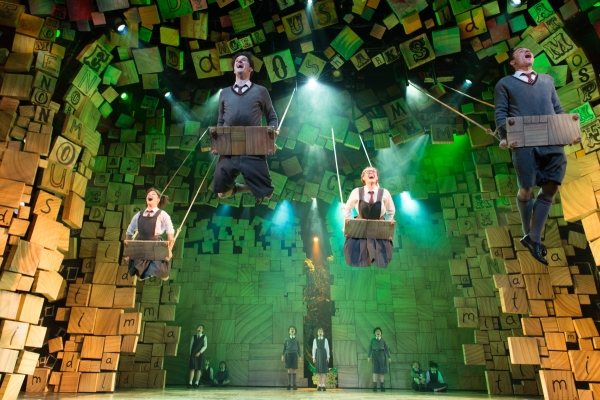Matt Trueman: Are British musicals stuck in the past?
‘Without a culture of experimentation, British musical theatre is at risk of stagnating’

How often have we heard about the crisis in British musical theatre? The conversation crops up every time a big British musical closes in the West End, but the problem runs much deeper than that. It’s as much a structural problem as it is an artistic one. When it comes to musical theatre, we have no culture of experimentation in this country.
Broadway’s biggest hits this season are Lin-Manuel Miranda‘s Hamilton, a rap/RnB history of America’s founding fathers, and Fun Home, a show adapted from a graphic novel, about a gay teenager, that lets us piece together the truth from conflicting alternatives. Recent years have yielded David Bryne and Fatboy Slim's immersive spectacular Here Lies Love and Bloody Bloody Andrew Jackson, another rock reimagining of American history, also directed by Alex Timbers. Meanwhile, we Brits can point to London Road, but what else? Jerry Springer: The Opera‘s very nearly 15 years old. Mamma Mia!, older.
Theatre evolves with experimentation. Radical practices, new forms and styles are gradually subsumed into the mainstream. As I wrote last week, what was once daring and experimental becomes standard practice once it has been tried and tested. Without a culture of experimentation, British musical theatre is at risk of stagnating.
Musicals are, of course, expensive to produce and difficult to get right – just ask Simon Cowell how he feels about I Can’t Sing – and that makes experimentation every bit harder. Even solid, by-the-book musicals like Betty Blue Eyes and Made In Dagenham can close within months at a sizeable loss – a daunting prospect for any commercial producer.
Hence the conventional wisdom that one needs a familiar title. After Matilda, Tim Minchin was advised to "concentrate on classic stories" by no less than Andrew Lloyd Webber, Stephen Sondheim and Cameron Mackintosh. His next project, of course, is Groundhog Day – another major motion picture soon to be a big stage musical.
Perhaps, critics should take our share of the blame. As a species, we can be quite fixed in our expectations of musical theatre. But who says a musical needs a catchy, take-home tune or a second-act showstopper? Our terminology can be exclusive too. When does a musical become a song-cycle, say, or a play with songs? I even saw Our Ladies of Perpetual Succour dubbed an ‘almost-musical’ at this year’s Fringe. What stops it from being a bold new musical swerving from delicate choral numbers to swaggering pop songs? It’s as if we define experiments out of the art-form.
In any case, why aren’t subsidized theatres doing more for musical theatre? If a form isn’t being well served by the commercial sector, isn’t it up to publicly funded organisations to step in?
The National is the one theatre with a decent track record. In addition to London Road, it’s produced The Light Princess and Wonder.land – albeit each with its own problems – and hosted transfers Here Lies Love and the TEAM’s sprawling, seductive Mission Drift. Musical development agency Pitch Perfect was introduced into the ACE National Portfolio in 2011 as well.
Elsewhere, though, musicals tend to be seen as a way of shoring up box office. The Lyric Hammersmith looked to Bugsy Malone on re-opening after refurbishment. Manchester Royal Exchange brings in big-name tuners over Christmas: Little Shop of Horrors or, this year, Into the Woods. At a time when new work is outstripping and outselling revivals, musical theatre is largely stuck in the past.
It shouldn’t be. The odd show, here and there, has shown that it’s a form ripe for experimentation. Take Song from Far Away, the Simon Stephens play with music by American Music Club’s Mark Eitzel: it’s a musical for one person with one song. We get shards of that single solo here and there, rather than distinct numbers and, instead of bunny-hopping along as some musicals do – scene, song, scene, song – the music becomes fully integrated into the text. Actor Eelco Smits winds his voice up into a rumble before catching a note and taking off into song. It’s a musical theatre cliche that people break into song when speech alone won’t do, but Smits really makes you believe it.
Song From Far Away doesn't entirely work as a piece of theatre, for a whole host of reasons, but it should be celebrated for pushing a form that’s all too rarely pushed. If the British musical is ever to escape crisis point, we need more of that.












